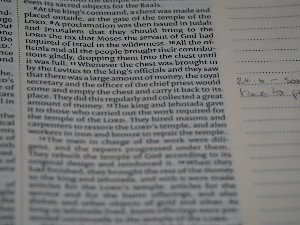Silvia Cattoni, Emilia Perassi
Extraños oficios de escritores nómades: Wilcock, Poletti, Bravi
Introduction
Extraños oficios de escritores nómades: wilcock, poletti, bravi. Descubre a Wilcock, Poletti y Bravi, escritores nómades entre Italia y Argentina. Su literatura mestiza desafía el canon, redefiniendo la alteridad y subjetividad cultural.
Abstract
En el campo de las relaciones culturales entre Italia y Argentina, se reconoce la figura del escritor nómade que, impulsado por motivaciones de desplazamiento territorial y lingüístico, promueve una corriente de literatura mestiza capaz de mediar entre culturas diferentes, conspirar contra los prejuicios reduccionistas del canon y de la nación, pensar de otro modo la alteridad en las sociedades contemporáneas. La figura del escritor nómade, aquel que movido por el desplazamiento relativiza la relación entre lengua de origen y nación, surge en el contexto de transformación que se opera en la cultura occidental a fines del siglo XIX Juan Rodolfo Wilcock, Syria Poletti y Adrián Bravi constituyen significativos ejemplos de nomadismo literario. En sus textos está presente la potencialidad metafórica de la figuración nómade que se actualiza en posibilidades diversas. Diferentes niveles de la experiencia vital autobiográfica de estos sujetos se manifiestan en la escritura y se tematizan en una particular construcción de la subjetividad que, a partir de determinadas localizaciones, señalan su singularidad. Se modelan protagonistas excéntricos que encuentran en su profesión formas de la propia rareza del escritor poliglota. In the field of cultural relations between Italy and Argentina, it is possible to recognize the figure of the nomadic writer. Driven by motivations of territorial and linguistic displacement, the nomadic writer promotes a trend of mestizo literature capable of mediating between different cultures, conspiring against the reductionist prejudices of the canon and the nation, and rethinking otherness in contemporary societies. The figure of the nomadic writer, who due to displacement relativizes the relationship between language of origin and nation, emerged in the context of transformation that took place in Western culture at the end of the 19th century. John Rodolfo Wilcock, Syria Poletti, and Adrian Bravi are significant examples of literary nomadism. The metaphorical potentiality of the nomadic figure is present in their texts, where it is updated in diverse possibilities. Different levels of these subjects’ autobiographical life experience are evidenced in their writings and thematized in particular constructions of subjectivity that, from specific locations, point to their singularity. Eccentric protagonists are shaped, who find in their profession the forms of the polyglot writer’s own rarity.
Review
This paper presents a highly relevant and timely exploration of the "nomadic writer" within the fascinating cultural nexus of Italy and Argentina. The abstract clearly defines this figure as a crucial agent in fostering "mestizo literature," challenging national and canonical prejudices, and rethinking alterity in modern societies. By focusing on the interplay of territorial and linguistic displacement, the article sets out to examine how these writers relativize the traditional link between language of origin and nation. The selection of Juan Rodolfo Wilcock, Syria Poletti, and Adrián Bravi as primary case studies promises a rich and illustrative analysis of this significant literary phenomenon, tracing its emergence in the late 19th-century transformation of Western culture. A notable strength of this proposed study lies in its compelling conceptualization of the "nomadic writer" as a subversive force, capable of mediating diverse cultures and offering alternative perspectives on identity. The abstract effectively conveys the article's intention to delve into the metaphorical potential of nomadism as actualized in the chosen authors' texts, linking it to their autobiographical experiences and the particular construction of their subjectivity. The focus on "eccentric protagonists" and the "rarity of the polyglot writer" suggests a nuanced investigation into how personal life and professional identity converge to shape a unique transnational literary voice, offering valuable insights into the complexities of cultural belonging and creative expression. While the abstract establishes a robust framework, one might anticipate a deeper articulation of how the chosen authors specifically "conspire against the reductionist prejudices of the canon and the nation," perhaps through concrete textual examples or a more detailed exposition of the "diverse possibilities" in which the nomadic figure is actualized. Further, exploring the precise mechanisms by which their "mestizo literature" mediates cultures beyond a general statement would enhance the argument. Such elaboration would further solidify the paper's contribution by illustrating the analytical depth with which these concepts are applied, potentially offering a clearer roadmap for future comparative studies of transnational literary figures.
Full Text
You need to be logged in to view the full text and Download file of this article - Extraños oficios de escritores nómades: Wilcock, Poletti, Bravi from Artifara .
Login to View Full Text And DownloadComments
You need to be logged in to post a comment.
Top Blogs by Rating
Beyond Silicon: How Living Mat...
By Sciaria
Genetic Dark Matter: The Unsee...
By Sciaria
The Spiritual Shelf Life: Navi...
By Sciaria
Favorite Blog
The Invisible Architects: Are...
By Sciaria
The Evolution of Knowledge in...
By Sciaria
Beyond the Stereotype: Unpacki...
By Sciaria
Related Research
Penerapan model team games tournament (tgt) untuk meningktkan minat dan hasil belajar bahasa arab peserta didik kelas xi mia i ma alkhairaat kalangkangan
Uma abordagem morfológica às dezenas cardinais do português brasileiro: -enta como um sufixo derivacional
A study of church libraries in australia
Share
Notice Board
- META-ANALYSIS OF FACTORS SHAPING RISK MANAGEMENT AND ADOPTION OF EQUITY-BASED FINANCING IN ISLAMIC BANKING
- EVALUASI PENGELOLAAN SAMPAH TERPADU MELALUI ANALISIS SKENARIO DENGAN PENDEKATAN WASTE REDUCTION MODEL V.16 (STUDI KASUS TPA MAKBON, SORONG, PROVINSI PAPUA BARAT DAYA)
- CULTURAL-BELIEFS’ INFLUENCE ON STUDENTS’ LEARNING OF LIVESTOCK PRODUCTION IN OGUN STATE, NIGERIA




